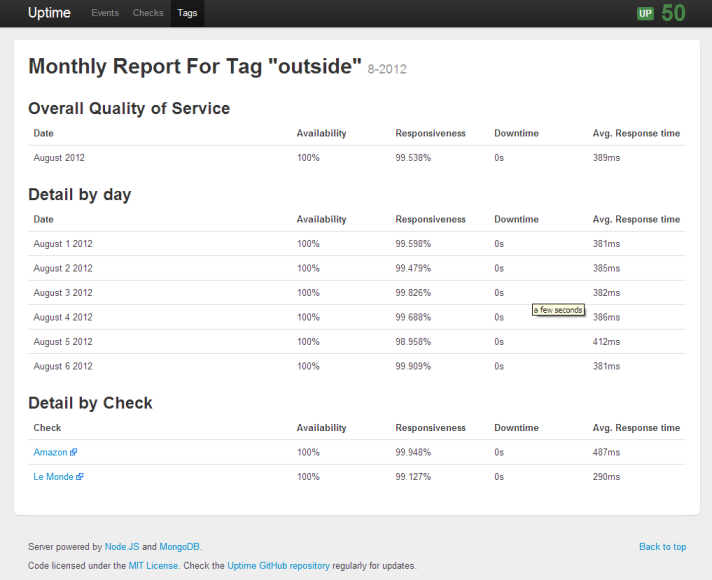Uptime 1.3 is released
Uptime, the remote monitoring application that you can run on your own servers, continues to evolve. Version 1.3 sees the introduction of monthly reports for tags, a feature made to ease reports to your end users.
In addition to bugfixes and internal refactorings, this version adds polish to the user interface. Here is the complete changelog:
- Added a User-Agent header to both http and https pollers, to identify pings from the monitor in server logs; you can override * the header via configuration
- Fixed "Save and add" redirection
- Made check title optional (falls back to the url)
- Fixed handling of relative Location headers
- Fixed chart timezone and vertical scale bugs
- Made new events more apparent in the navbar, and in the events page
- Removed custom date display logic and added moment.js as a dependency.
- Fixed check when http redirects to https
- Removed lifecycleEventsPlugin and added mongoose-lifecycle module as a dependency. This change renames events on Mongoose * models from 'pre-' to 'before-' and from 'post-' to 'after-' (e.g. 'postRemove' becomes 'afterRemove').
- Modified API routes to be more RESTful
- Upgraded dependencies (mongoose, express, ejs, config, async, socket.io)
- Added a Reports tab for tags, offering easily accessible monthly reports
- Made tabs compatible with direct links and back button in tag and check view
Uptime is still for Node.js 0.6.x only. A version compatible with Node 0.8 will be in the works as soon as the two main dependencies of the project, Express and Mongoose, hit the "stable" status on Node 0.8.
Tweet
Published on 06 Aug 2012
with tags NodeJS open source uptime
